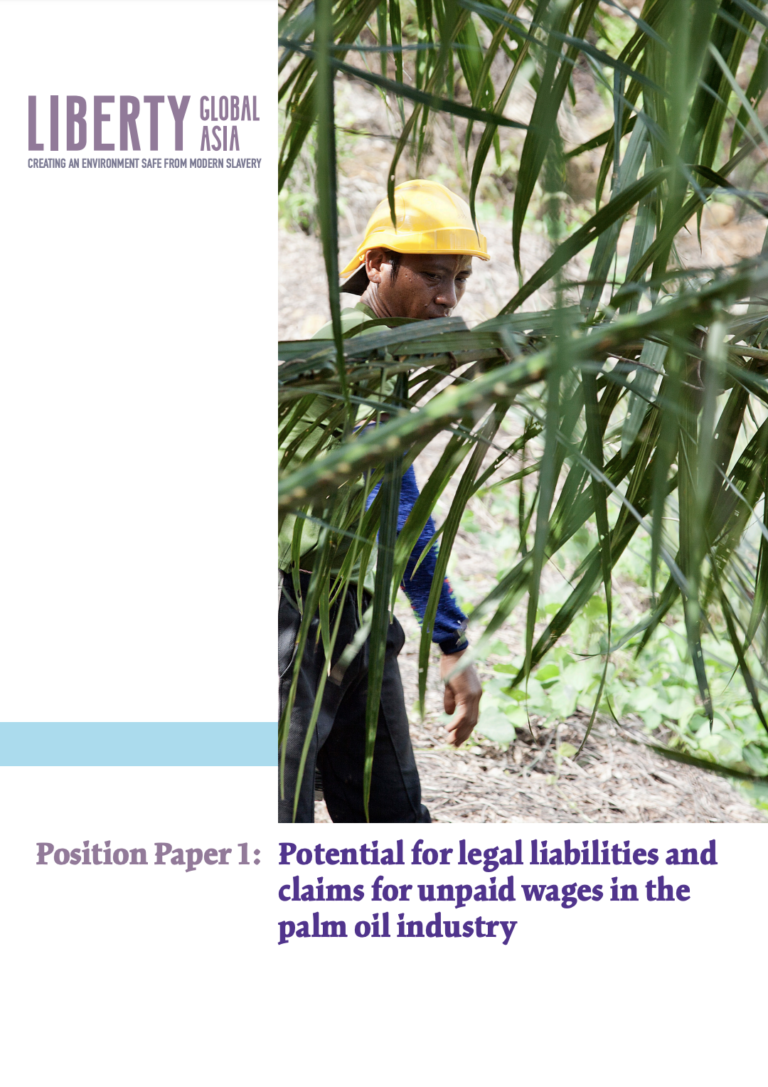To support the further knowledge and understanding of the relationship between palm oil industry stakeholders (the “Industry”) and the communities that supply workers and the potential risks that may arise to these stakeholders and also those with concerns in the Industry, this paper (one of five) explores the material risks arising from the current governance, management, supervision and administration of labour to the Industry.
The work set out in this position paper (the “Paper”) does not seek to name specific instances but envisage broad and potential material financial losses and further consequences to the Industry in Indonesia and Malaysia and beyond arising from identified potential legal and financial liabilities arising from material risks in areas of human resource management. The paper is based on research, data and information sources.

